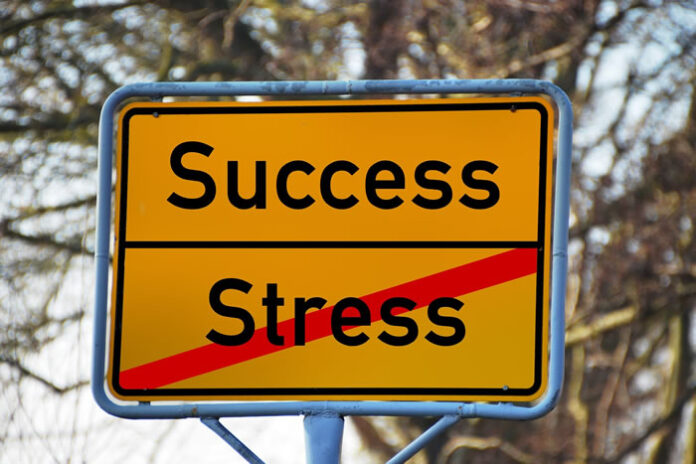If you are a high-functioning individual suffering from a mental or behavioral health ailment (which may or may not be protected under the disabilities act for reasonable accommodation), your daily life at work is quite possibly a tough battle. A tougher one possibly than of those who are off-work on leave and therefore, although quite possibly much more debilitated, can have some level of control on the amount of uncertainties that will disrupt their wellbeing. Whether you are depressed but your severe phases come in cycles, or are a GAD (general anxiety disorder) sufferer who can pull through most of the days but not all, or suffer from a Psychosis that occasionally manifests at work but doesn’t completely impede your ability to be employed, you are someone who shows up to work and does great (either because or in-spite of your disorder) while pedaling like Stanford ducks underneath the surface. You either didn’t disclose your disability at work, or even if you have, will not avail (unless it’s the last option) the ‘reasonable accommodations’ available to you.
But most challenging is the fact that no one talks about the likes of you. There are no career development articles, best known methods, behavioral guidelines, leadership skills, that will acknowledge you, let alone provide direction. No one wants to talk about us. We ourselves don’t want to deal with the not normal parts of our otherwise normal days. But we are the new normal. Mental health at work is becoming more and more a matter with work and life complexities skyrocketing. So, the counsellor’s couch toolsets need to come into the mainstream career conversations, not just tip toe-d around in chapter seven of self-help books.
This is an even bigger problem for women because of unhelpful gender stereo-typing and unfair labelling. Hormonal. Emotional. Un-professional. No, we are not, but men are in majority and therefore, ‘testosterone-ic’ behaviors are considered professionally more acceptable, and even downright desirable, even when they are outcomes of the same struggles that manifest as tears for women. Reactions are also grouped, and gender labelled, instead of categorization by mental health condition which could serve the helpful purpose of mental health awareness.
I have had to craft my own guidelines, success definitions, and daily steps. The first step is to address head on the fact that we, and others like us, exist. Note: this doesn’t suggest mandatory declaration or disclosure. In fact, my advice on that is to tread very carefully irrespective of what printed policies say. There’s a lot of progress still to be made on unconscious bias and mental health awareness. But we need to ruthlessly trash any of the shame we might feel within ourselves. And then, we need to be aware of signs in others that would require us to have higher self-control and greater compassion. Empathy is one gift out of this curse, and we should take advantage of that by being the higher EQ individuals in the room. We will need that to shield us against our behavioral ‘eccentricities’ which we will not be able to always control. We also have to take a social responsibility, if I may call it so, to be vocal in our own ways possible appropriately. Finding a tribe, an outlet, and working to help a cause that affect us daily is a great strength provider, and the base of this pyramid that I will try to build here for excellence at work for the likes of us.
There are two well-known principles I am going to base this roadmap on. One is the known concept of run the business, grow the business, transform the business (or you might have heard it as keep today secured, plan for tomorrow, transform the future – or similar – you get the theme). This is a familiar concept for business. Now think of this and apply this to what I’d like to call a ‘self-aware roadmap for career sustenance and development’. First, acknowledge that you have some limitations, know what they are, what your triggers are, and have foolproof, well-practiced plan for managing them. First for today, and then for tomorrow. Below are some tips on that.
Meditation and Mindfulness
This horse has probably been beaten to death, but not in a way that can work for high-functioning strugglers who need some tools while at work. Focusing on your breath while driving to work on your worst days and forcing yourself to continuously re-ground through tools like counting, concentrating on a sound, tapping is something you need to not only know of, but also have written down somewhere to be able to use regularly. It takes a bit of time and on our worse days, a lot of determination, but eventually the calming effect of focusing on the moment starts becoming more and more apparent.
Have dignified breakdowns and manage the aftermath
Separating ourselves physically from an upsetting situation is often not possible in the moment. A grueling presentation, a sudden confrontation, a difficult conversation can’t be just put away for some time (unless it’s in an email and if so, I absolutely recommend doing that) or walked away from. But it can be done after it is finished. But with self-awareness and practice, our reactions can be controlled. For example, every time I get upset and angry, I note. Next time, I prepare to reduce the intensity. And once it’s done, I manage the after action. I used to get into the ‘I need to fix this now’ mode. I changed that to ‘I need to go to a private spot and take some deep breaths’ mode. Do that after an upsetting incident where you raised your voice, started stammering, or broke down. And then, come back and fix a follow-up meeting to address the issue. Write down what you think your point was that was unheard – be factual, respectful, and vulnerable but dignified. Have the second meeting prepared and when in control.
Don’t cry at work advice is not for us. But with some practice we can prevent it from being a habit. With intelligent after action, we can prevent it from branding us. And with every passing incident, if we are aware, we can reduce the intensity of the next one.
Understand that everyone can be us
At one point in my career I was constantly getting into confrontations with a colleague who, from my vantage point, was emotional, disrespectful, slacking at work and abusive in her communication. Given my propensity to anxiety, I started feeling anxious at the thought of having to meet her. Realizing that she was unhappy in life for reasons nothing to do with me, and that she was more anxious coming into the meetings than I was, helped me take me (the ‘maybe I am not strong enough and that’s why she is doing this to me’ though) out of the way. It wasn’t personal anymore. We were both co-strugglers. Empathy came in, and I didn’t really have to do much from there. Her behavior didn’t change, but what she was triggering, stopped.
The second principle for this roadmap is that of the stress cup. A well-known concept for PTSD but generally applicable – it is the fact that when stress starts overflowing out of the cup, there is a problem and for some, the cup is already filled leaving less margin against an overflow. For managing both today and tomorrow, it is very important for the likes of us to understand the amount of immediate, intermediary, and longer-term stress in our environment and how we are doing managing it. No one can predict too far out in the future, but we can know of major travel plans and upcoming life events that we might have mental bandwidth filled with. Example, if end of first quarter is when I know work usually picks and is also a time when, every year, I need to organize two big parties (for my husband’s and daughter’s birthdays respectively), I try not to have writing events or big career changes initiated around this time.
On the contrary, October-December are my go-to, festive, happy months and year end has been consistently light in my kind of work. I overload these months with tough things like job changes. Granted, this can’t always be controlled – but when things do pop up in March I wasn’t prepared for, I allow myself time (to be delayed on some other stuff), and permission to un-excel (I will not be able to make the biggest acceleration to my career through this sudden opportunity that has come up because I am not my best, but that’s ok – I will note and have a bounce back plan for April). Most importantly, I am extra observant of myself and of others at these times. I catch myself having a faster heart beat faster because I observe like a hawk. I increase my daily mediation times and take myself out of public or confronting situations pro-actively as a result.
Moving on to transforming the future now – look at life longer term. Short term, most days will be horrible for the likes of us. But are we making progress, both in personal and career growth over a quarter? A year? A few years? Tony Robbins has correctly said that most of us underestimate what we can do in a decade while overestimating what we can in a year. So, give yourself some time and constantly remind yourself that you have time. Write this down if you must.
Plan for the long-term
It is also important to have longer term plan for not being ourselves (to feel better, read: not being our un-managed selves at work). We master this trick somewhat – otherwise we won’t be high functioning sufferers – we would be kicked out. But we struggle because of the constant ‘be yourself’ propaganda around us which is often misguided and idealistic. I haven’t come across a single social setting (and workplace is a social setting above all) till date where an anxious person who visibly displays signs of the same, or a depressed individual who keeps on breaking down, is not talked about because of the same. Unfortunate, but true. People don’t think of you the same way when you say you are bipolar as they would if you had severe diabetes.
Again, unfortunate but true. Until we get there as a society, curate and perfect your controlled behavior toolkit and practice it with pride. This doesn’t mean be dishonest. This means find out where you are still failing in managing your symptoms at work, develop a strategy for finding a non-work outlet for that, and have a five-year plan for becoming better on the same. One example, I used to have panic attacks when presenting publicly and a fear of confrontation which would lead to defensive anger. I have a step by step plan (starting with walking into the meeting with an objective of understanding everyone’s perspective, listening more speaking less, re-focusing on breath, holding my leg a bit lifted under the table when things so south) of immediate mechanisms. But I also have a five-year plan for excelling in presentations and mastering constructive confrontations. What you are most afraid of or you are failing at (because of your ailment) is what is limiting you. You will need to manage it today and tomorrow, but you will also need a plan to fix it for the future beyond that.
Lastly, make sure you make mental health a priority off work. If we don’t treat a chronic physical ailment and ignore it when it isn’t bothering us, it will eventually flare up. Your depression might get better, but without constant mindful self-care, will crush you as soon as life throws a curve ball. So, keep your counselling appointments and stick to the wellness practice that works even when things are great. Just like exercising three times a week or doing blood sugar check-ups.
















Comments are closed.